Welcome to the Crazy Sobriety Vlog and today we’re asking why using willpower to quit drinking alcohol never works.
Thank you for joining me. Yesterday we looked at different ways, what are the best ways to quit drinking alcohol. And the first one I suggested was willpower. Now for some people willpower is a very effective means to stop drinking alcohol. It could be that they’re an occasional drinker and they’re not routinely drinking alcohol for different reasons, like celebrating the end of the week at work, or using it to to relieve stress, or for one of a myriad variety of reasons.
But for some people, they may find it more challenging to stop drinking alcohol, and when there’s events like dry October or dry January, they may struggle during those months.
And then you have this sort of grey area where to stop drinking using willpower is much more difficult. And then you’re developing a sort of, or have developed possibly, an unhealthy relationship with alcohol. And this is when it becomes difficult, or more difficult, to use willpower to stop drinking alcohol.
Now also I think about an analogy: I love motorhomes. My dream one day is to buy a motorhome with a garage in the back so I can put my motocross bike in it. I’m a bit of a biker, if you’ve missed the clues, and when I think about a motorhome, looking at pictures of motorhomes, like motorhome porn, isn’t gonna get me a motorhome. And in the same way, thinking about drinking, or not drinking, isn’t going to stop me drinking. It’s what I’m doing outside of that goal to achieve that goal, if that makes sense. So If I want to stop drinking, then using willpower and saying, “I definitely won’t have a drink now, I definitely will not drink,” is not necessarily going to work because you should be doing things to not be thinking really about drinking.
Using distraction, using different activities, changing your routines, avoiding the occasions whereby you would normally engage in drink [avoidance strategies rather than willpower within the same environments where you drank alcohol]. So there’s all those different sorts of things you could be doing rather than just focusing on pure willpower, “I will not drink, I will not drink,” which is not very effective.
There was a great theory by Daniel Wegner, and I’m looking in my book now who wrote Ironic Process Theory. And he said,
“This theory posits that processes that undermine the intentional control of mental states are inherent in the very exercise of such control.”
And what this means is it’s a bit like the pink elephant in the room, if you say, “don’t think about the pink elephant.” Sorry, I’m confusing two analogies there, aren’t I, the elephant in the room and don’t think about pink elephants. But the point is, if you say, “don’t think about a pink elephant”, you’re gonna think about a pink elephant… in the room (!) So this is really what Daniel Wegner is saying. And he explains it a little bit more. And if you bear with me, I’ll just just read a little quote, from his research again, this is in my book.
“It is not just that we cannot sleep for instance, or that we cannot stop thinking about food when on a diet. The problem is, the more we want to sleep or to banish food thoughts, the more we fail. We stay awake, worrying, that we cannot sleep and we spend all day mentally in the refrigerator when we are hoping to diet. The agony of mental control is that oppositional quality that always seems to haunt attempts to direct our minds.”
That’s Daniel Wegner, in a fantastic book called “Holmes’s Complete Guide To Stop Drinking Alcohol,” by me. So it’s a lot about controlling our thoughts.
So why doesn’t willpower work? Because willpower is not changing our thinking. Willpower is not changing our attitude towards alcohol. We’ve got all of the same thoughts, feelings, attitudes, misunderstandings, misapprehensions even, about alcohol.
And then we just say to ourselves, okay, we’re not going to drink. How can that happen? How can it work, it’s impossible to work. If you still think, Oh, well, I can get a buzz out of alcohol, I really enjoy it when when I go out with my mates, and if you’re still in the mindset of how great alcohol is, and then you’re going to rely on using willpower, you are setting setting yourself up for torture. And there’s no other way because these views, your way of thinking is so embedded.
So if you’re not going to change the way of thinking and deal with that, then you’re just going to torture yourself by saying, I’m going to use the willpower method. And this is why many people, me included, go on this cycle of repeatedly quitting. And it doesn’t make sense. Why am I trying to quit again? Why am I trying to quit, again? Do I have a drinking problem?
And possibly that is even more ironic than Daniel Wegner’s Ironic Process Theory!
Because do I have a problem drinking, if I’m asking myself, do I have a problem drinking?
I mean, it’s the old classic, isn’t it? So, willpower?
Once drinking moves from a kind of occasional or celebratory, once in a while, once in a blue moon occasion to a more habitual use and, may I use the word “purposeful” use, so that you’re using alcohol for a particular purpose, then you will potentially struggle to use willpower to quit drinking alcohol.
Have a great day.
See you tomorrow.
Bye.

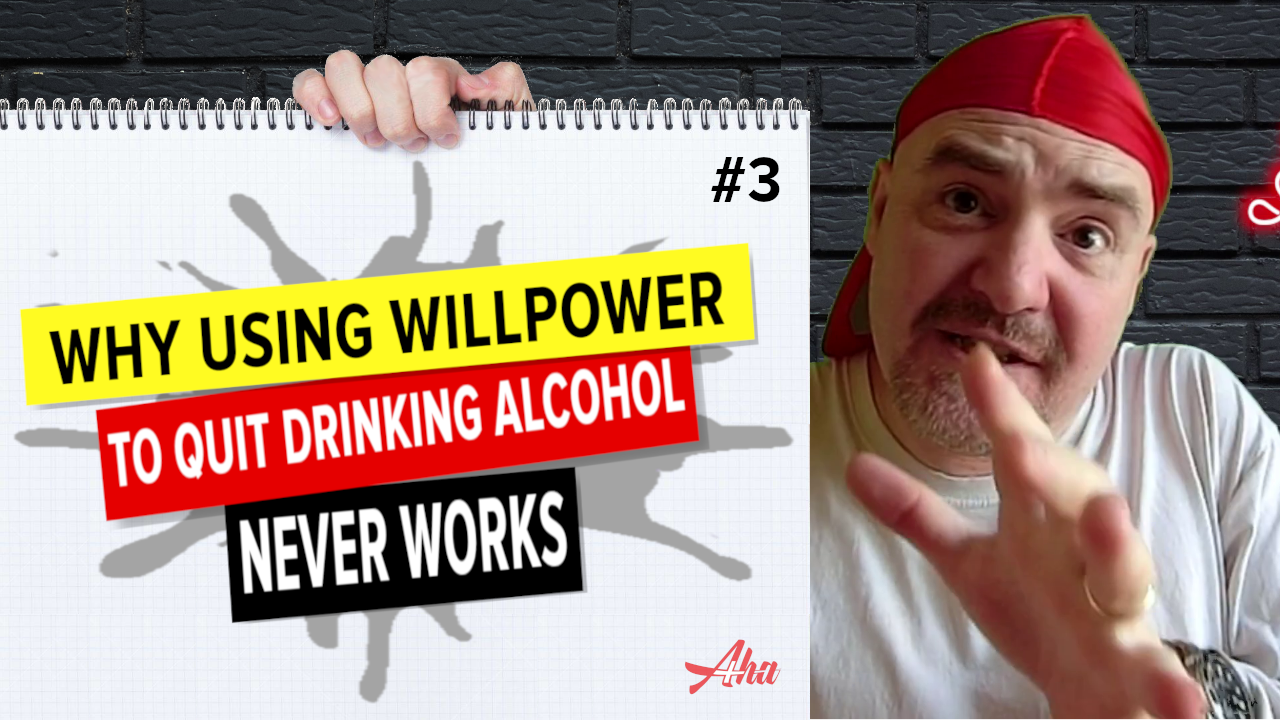
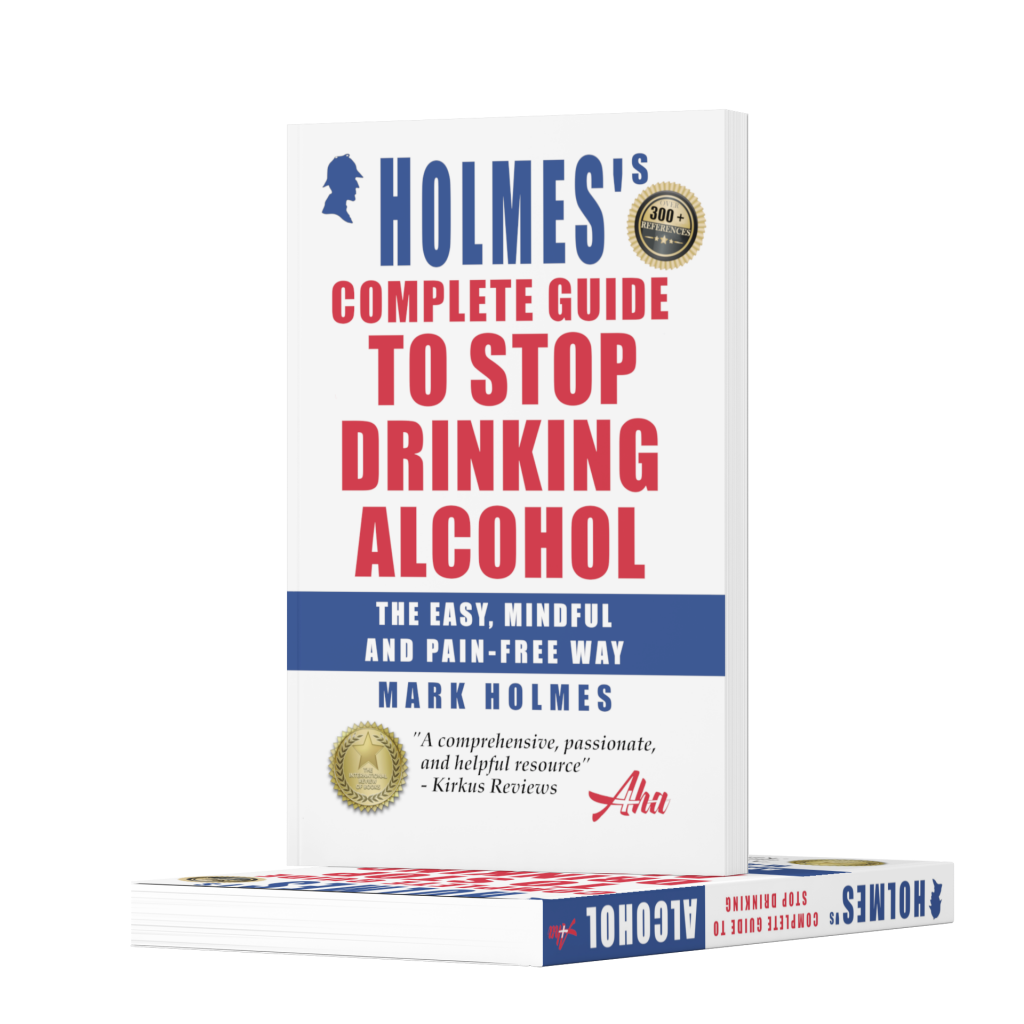
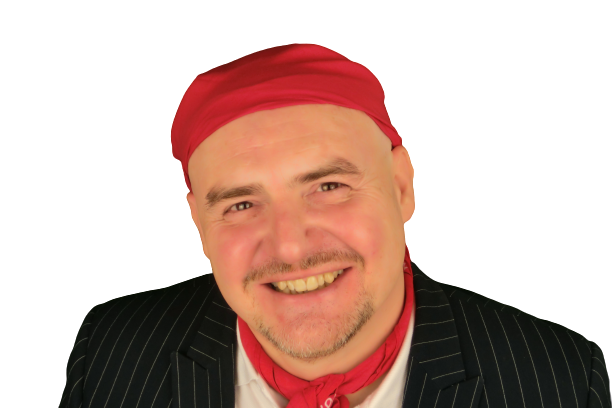
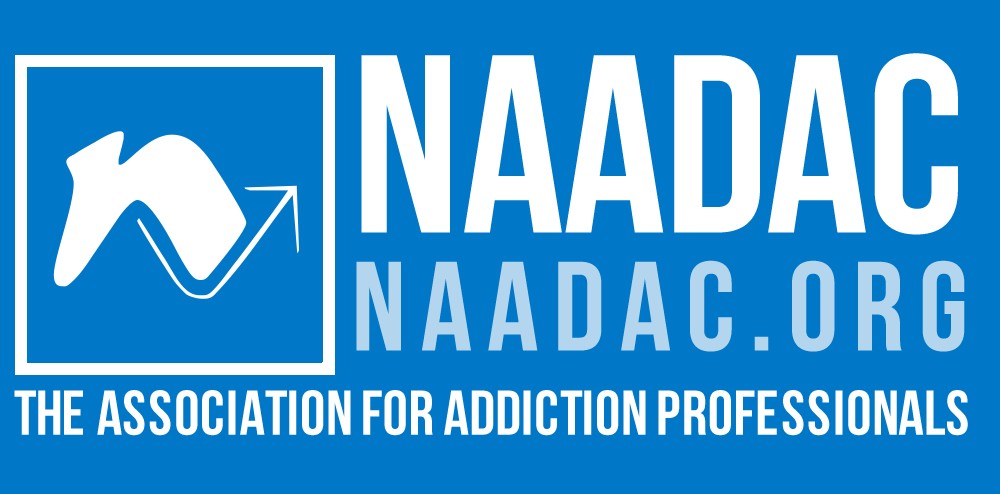
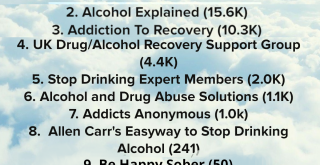
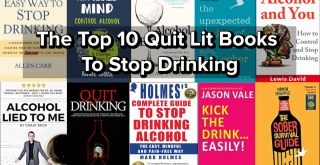
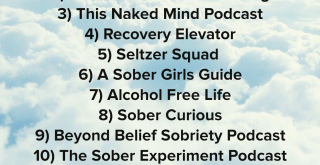
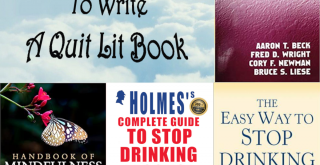
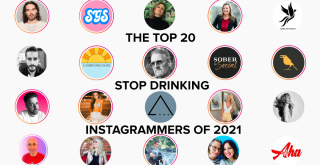
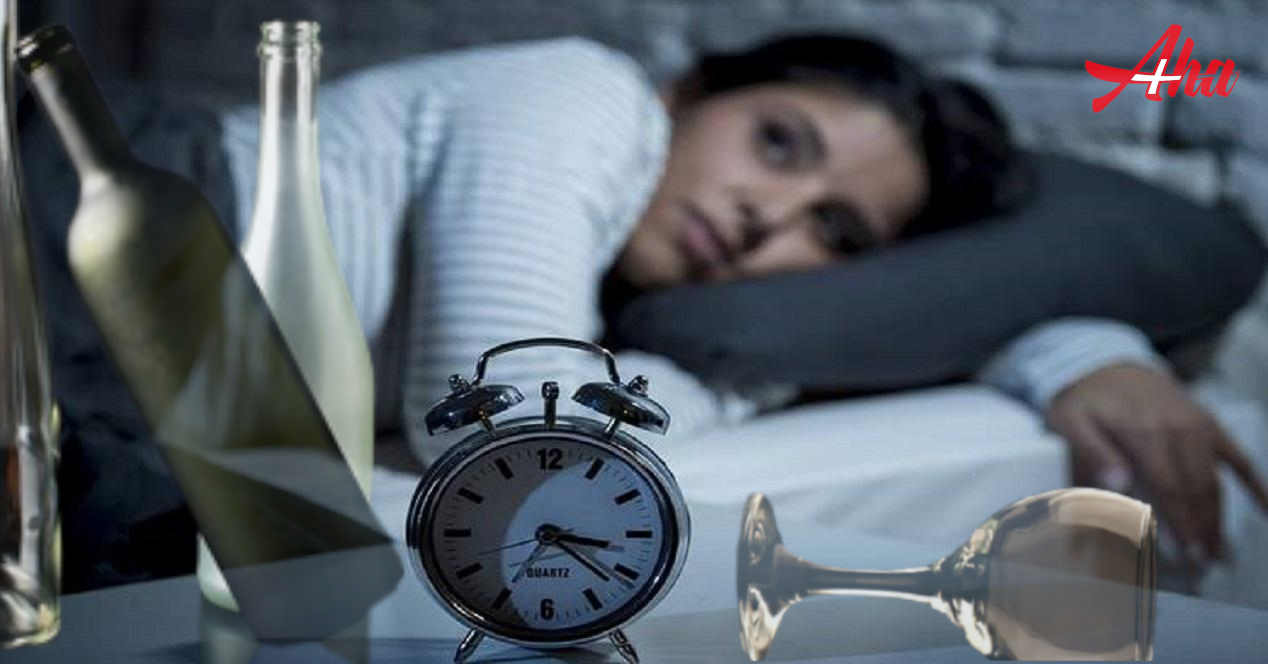
0 Comments